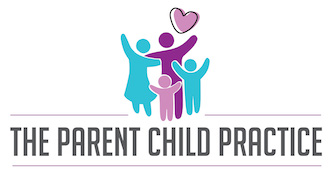Approximately once per week I receive a call from a parent, college student, or adult wanting to understand more about Dyslexia. There are many articles on the internet, numerous conversations on listservs, and a lot of individuals who are ready to disseminate information to others based on their own personal experience or readings about Dyslexia. Some of this information is accurate and some of this information is completely inaccurate. Consequently, when parents call me, I sometimes ask what they already know about Dyslexia. In addition to scheduling families for evaluations, my goal is to educate and empower families with information that is accurate. Therefore, in today’s blog post I am going to reveal my responses to commonly asked questions that families have for me about Dyslexia. I will also share a second blog post about possible components of a Dyslexia evaluation and recommended instructional strategies for children identified with Dyslexia.
What will happen during a Psychoeducational/Learning Disabilities Evaluation?
As a clinician trained in School Psychology, I receive numerous phone calls from parents or adults interested in psychoeducational testing (learning disabilities testing). In fact, this is a great deal of the types of calls that I receive because of my professional background and training. During my conversations with callers, I am often asked, “What happens during testing?” This is an extremely common question for me and I get it. People feel a lot of anxiety when they don’t know what to expect. Therefore, I am always glad to answer that question. I hope that by writing this blog post I can answer this commonly asked question for anyone looking for information about what is involved in psychoeducational/learning disabilities testing.
Strengthening the Parent-Child Relationship: Building A Bond That Will Last a Lifetime
It’s Thursday night and your car spins into the parking lot of the school for your child. You hurriedly park, grab your car keys, and rush out the car into the school building. You speed walk into your child’s classroom, grab them by the hand, and then rush back into the car to fight the evening traffic. Once you arrive home it is like a mad dash – homework, dinner, wiping of noses and/or tears, cleaning up after everyone, brief moments of adult conversation (if you’re lucky), baths, story time, and then bed. As you sink into the chair or your bed later that night, you may wonder whether you actually spent any quality time with your child or rather did you just participate in a human assembly line of child rearing tasks?
Parents don't wait and allow this to be a statistic for your child
Parents don't wait and allow this to be a statistic (National Center for Learning Disabilities) that is true for your child.
Navigating the maze for college accommodations
When seeking services in college, students must provide documentation that they have a disability and need college disability services. A psychoeducational evaluation can can confirm the disability as accurate and a determination can be made about what types of college accommodations may be beneficial.
Is Homework Driving Your Family Crazy? Three Quick Tips for Tackling The Homework Battle.
School has ended for the day. Your child is home and feeling exhausted from a long, and possibly stressful, day at school. Although it is likely that your child would like to do nothing more than toss their backpack in a corner and savor every glorious minute of their evening before bedtime, you must remind them that they have homework to complete.
Teen Sexting: Tips for Parents - Part III
Cell phones are everywhere. Almost everyone uses a mobile device to communicate with others. The spurred growth of cell phone usage has resulted in an increase in the number of teens who have engaged in sexting. Parents should be aware...
Three Ways To Screw Up Your Kid
Teen Sexting: The Truth Uncovered -Part I
A survey was distributed by the National Campaign and some alarming statistics were revealed regarding teens that sent text messages with lewd and sexual content. I know that most teens and tweens have a cellphone and I also know that most parents are not aware of what is being sent from those phones.



